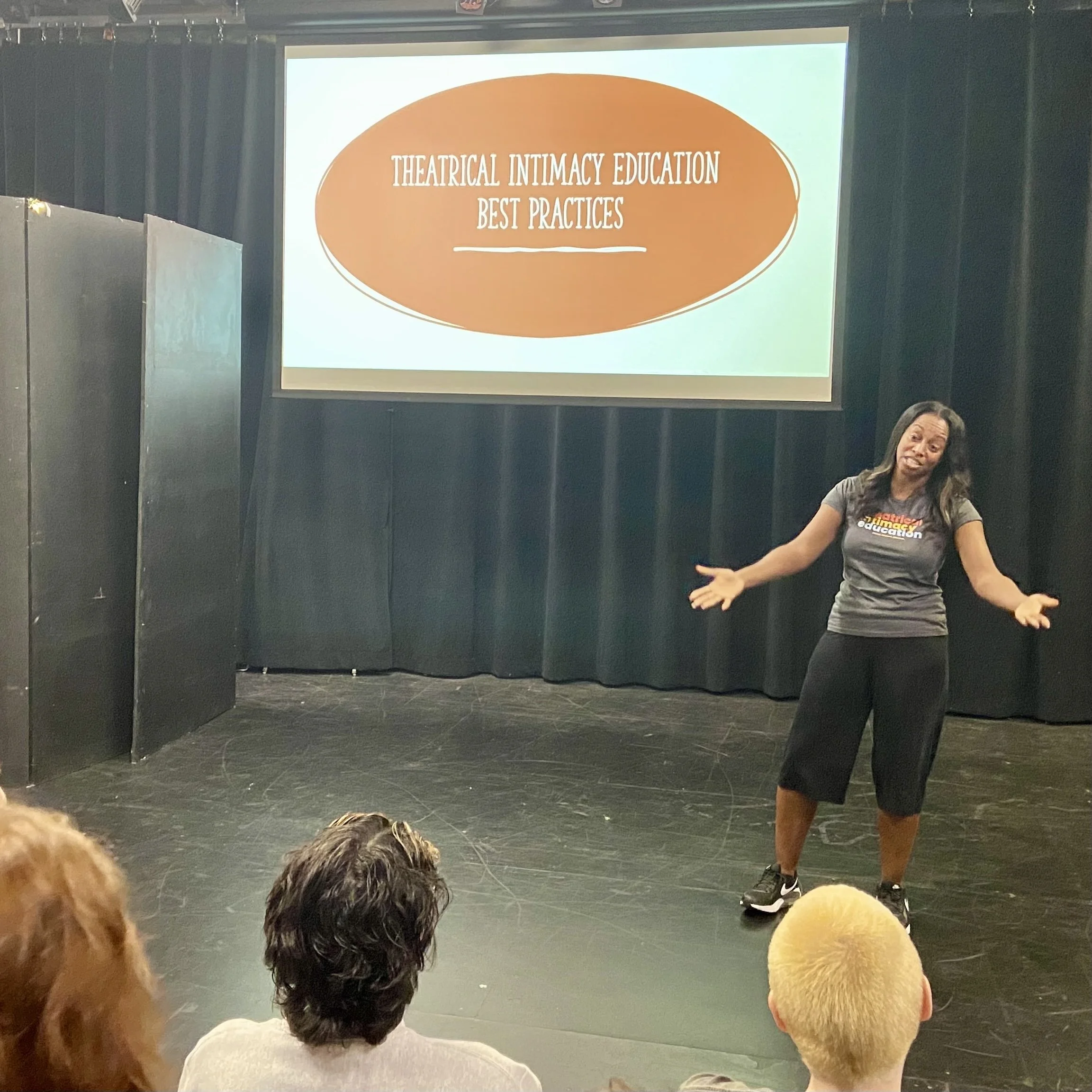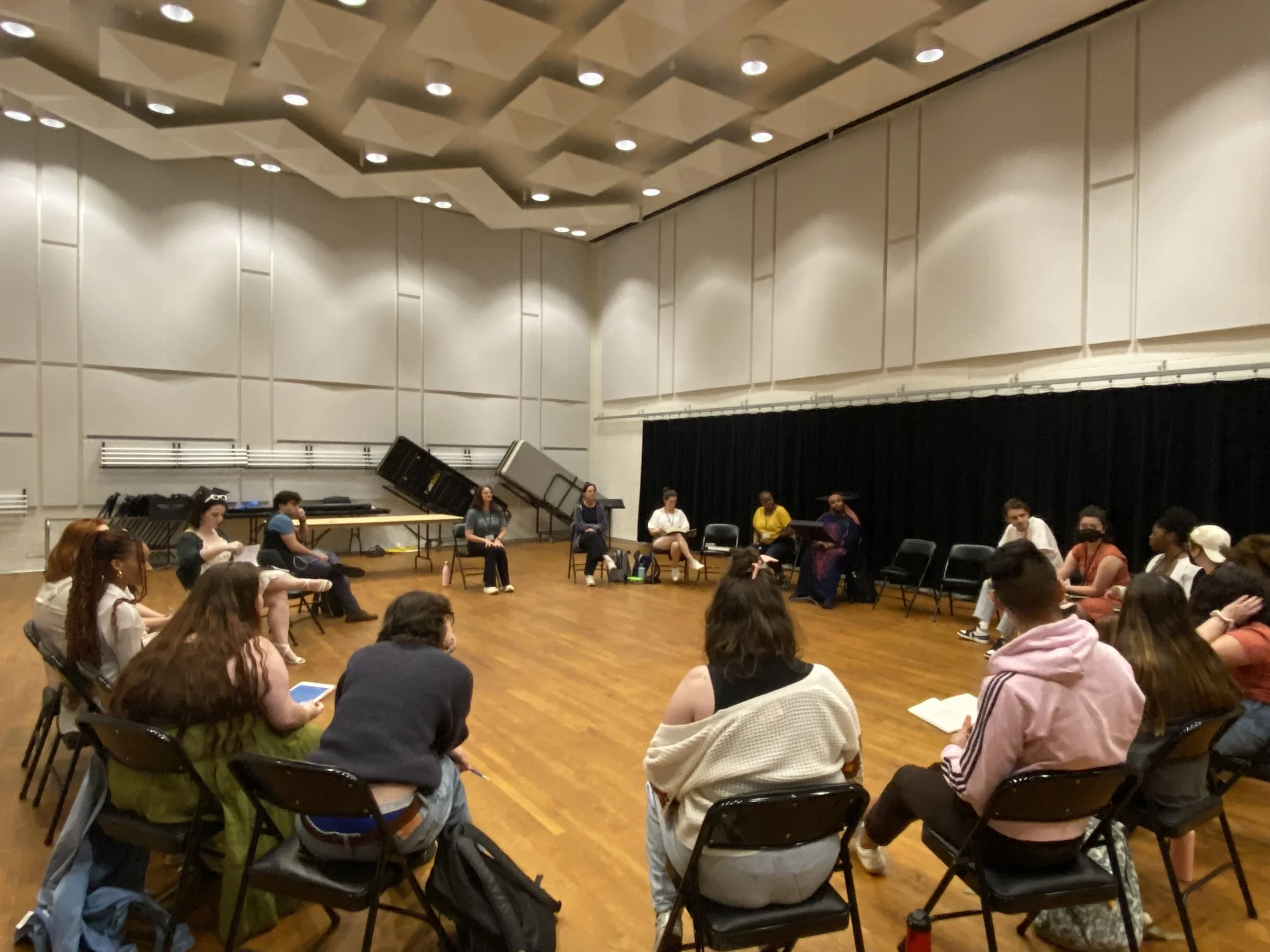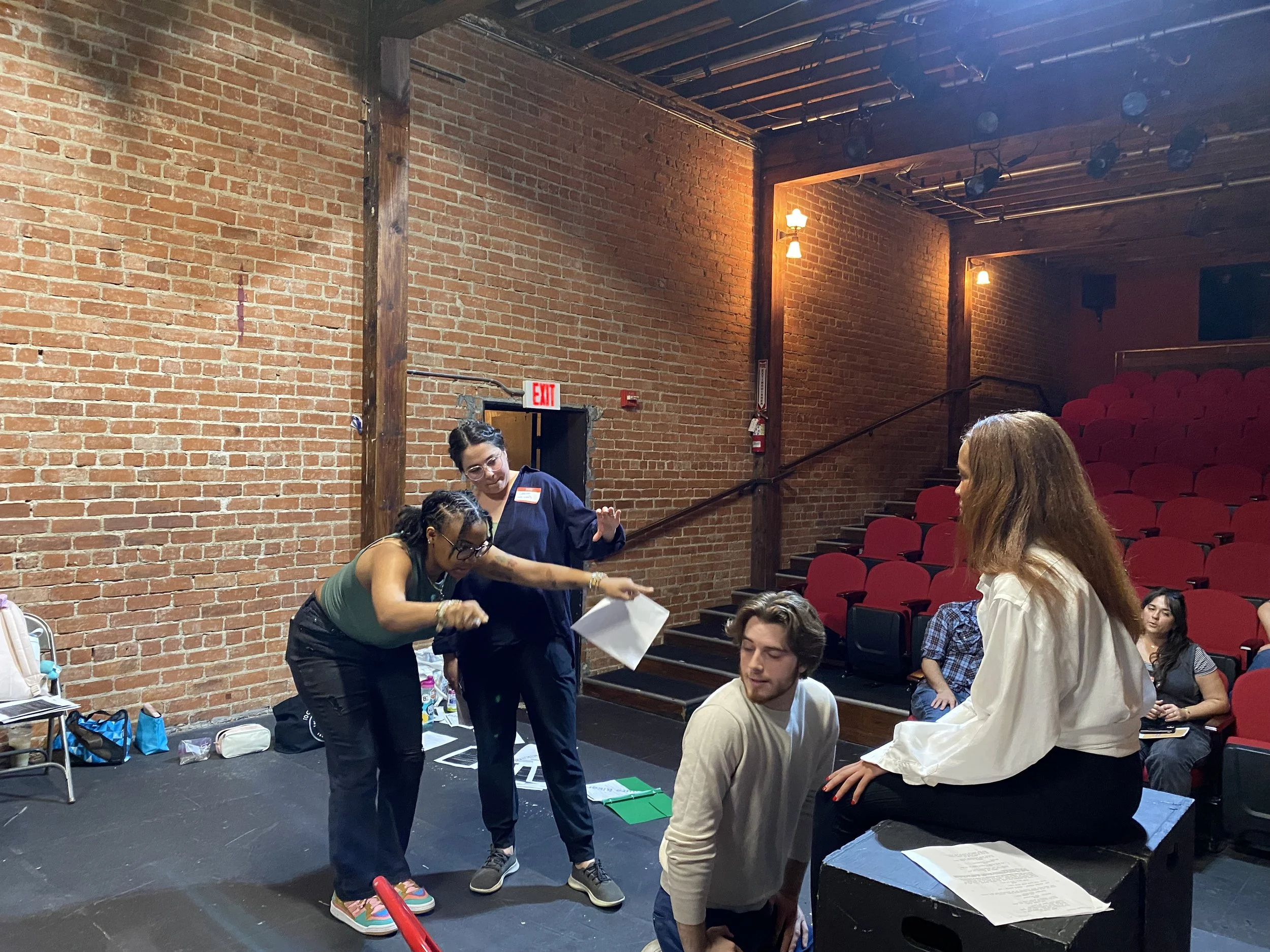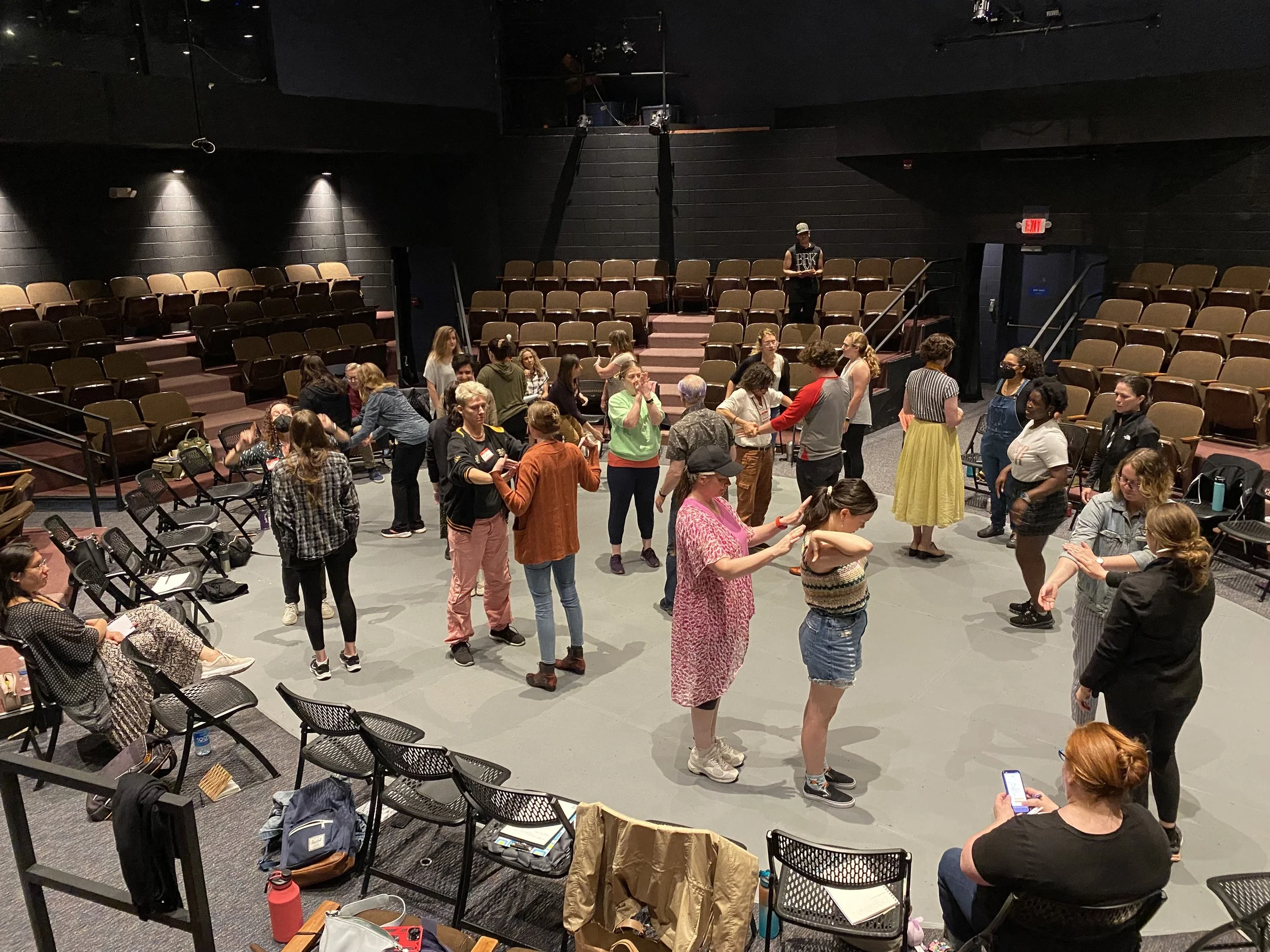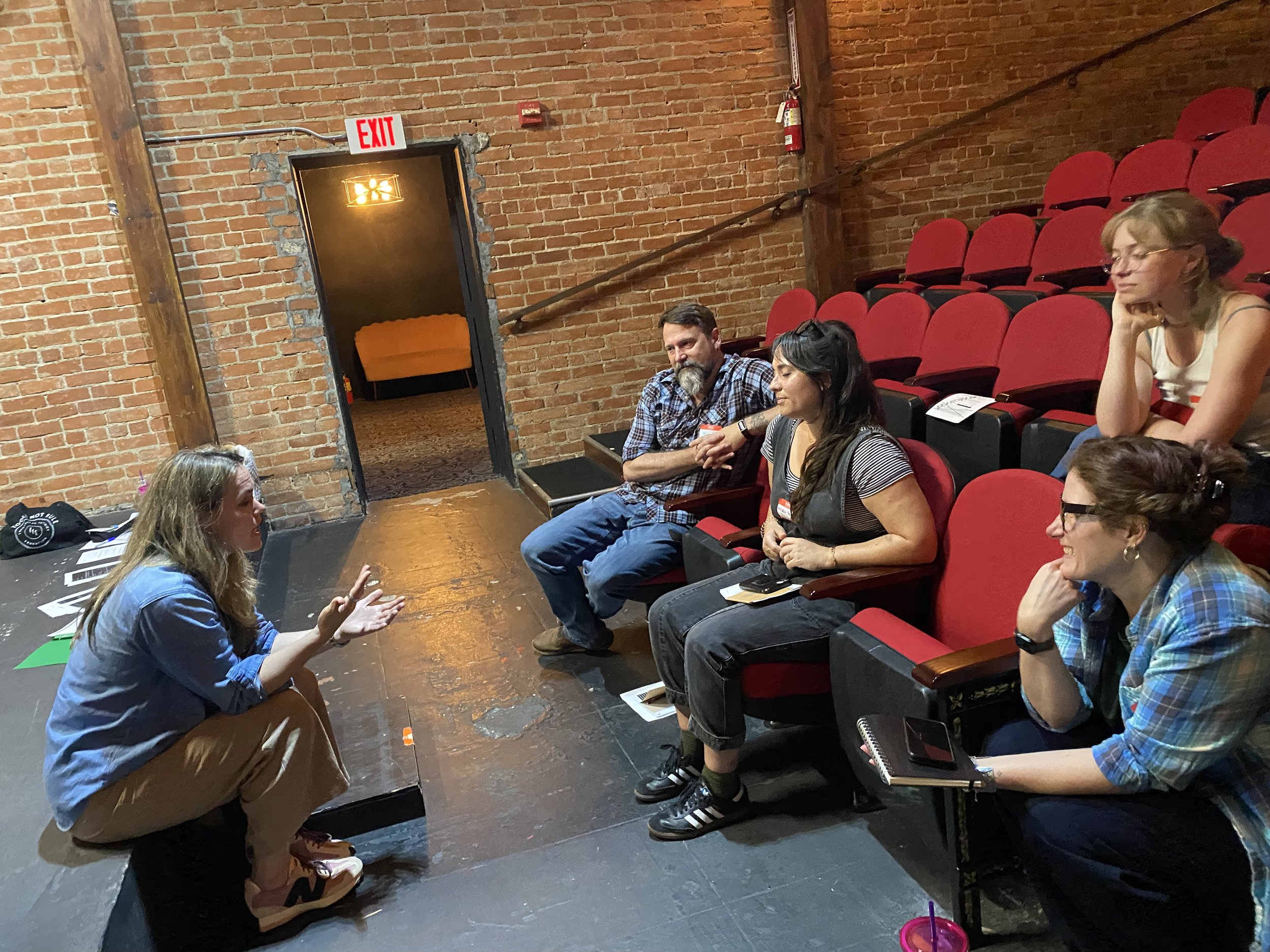Educational Residencies and Trainings for Theatrical Intimacy Education
Guiding Faculty, Dr. Amana Rose Villarreal leading a workshop at California State University Northridge.
Theatrical Intimacy Education (TIE) offers educational residencies and custom-built training programs designed to equip artists, educators, and institutions with the skills and knowledge necessary to navigate the complexities of staging intimacy in the performing arts. Our mission is to promote best practices in staging intimacy, emphasizing consent, boundaries, and respectful collaboration.
Key components of the Educational Residency
Workshops:
TIE provides interactive workshops tailored to the needs of specific institutions or groups. These sessions cover topics such as TIE’s foundational best practices, consent in the acting studio, boundary setting, and effective communication in in the rehearsal hall, classroom, and collaborative settings.
Participants engage in exercises that promote practical skills and foster a deeper understanding of the psychological and physical aspects of staging intimacy.
1. Curriculum Development:
TIE collaborates with educational institutions to develop tailored curricula that integrate theatrical intimacy education into existing programs. This ensures that students receive comprehensive training that prepares them for the realities of professional work in the industry.
Focus areas may include consent in the classroom, scene work, movement, and voice, all approached through the lens of consent and collaboration.
2. Consultation Services:
Institutions can benefit from consultation services that assess their current practices and policies regarding intimacy in performance. TIE offers recommendations for improving safety and inclusivity in the rehearsal and performance processes.
This includes reviewing scripts for intimate content and advising on how to approach these scenes responsibly.
3. Facilitated Discussions:
Residencies include facilitated discussions that encourage participants to reflect on their experiences, concerns, and questions regarding intimacy in performance. These discussions foster a culture of openness and understanding within the artistic community.
Topics may include navigating power dynamics, addressing community culture, and creating a supportive, collaborative environment.
4. Ongoing Support:
TIE offers ongoing support and resources for participants after the residency, including access to educational materials, online resources, and networking opportunities with other professionals in the field.
Participants are encouraged to continue their learning journey by attending future workshops and virtual training.
5. Work Towards TIE Diploma
TIE shapes each individual residency to the group. If it is desired, TIE can design trainings so that participants can work toward earning their diploma.
Guiding Faculty, Associate Professor Mya Brown leading a workshop at Longwood University.
Key Components of the Educational Residency for Working with Minors
Age-Appropriate Practices:
TIE emphasizes the importance of understanding developmental differences when working with minors. Training sessions focus on age-appropriate language, activities, and expectations, ensuring an ethical, nurturing environment for young performers.
Educators and directors are trained to create an inclusive atmosphere where minors feel secure and confident expressing their thoughts and boundaries.
Staging Close Relationships:
The residency addresses the unique challenges of staging close relationships, particularly when involving minors. TIE provides strategies for fostering commiunication and rapport between young actors and their scene partners, ensuring ethical approaches while working through potentially vulnerable moments in rehearsal and performance.
Training includes techniques for approaching scenes that involve friendship, familial bonds, or romantic connections, with a focus on clear communication and consent.
Heightened Emotional Moments:
In working with minors, the residency offers guidance on how to approach heightened emotional moments sensitively. Educators learn methods to help young actors access their emotions while providing them with tools to process and manage those feelings safely.
TIE emphasizes the importance of incorporating debriefing sessions after intense scenes, allowing actors to share their experiences and emotions in a supportive setting.
Incorporating Consent Education:
Training includes specific modules on teaching minors about consent, boundaries, and respectful interactions. This education empowers young actors to advocate for themselves and communicate their needs during rehearsals and performances.
Emphasis is placed on creating a culture where consent is an ongoing conversation, allowing minors to feel secure in their artistic choices.
Benefits of TIE Educational Residencies
Empowerment: Artists and educators are empowered to create thoughtful and respectful environments for vulnerable work, promoting a culture of consent and collaboration.
Skill Development: Participants gain practical skills that enhance their ability to handle sensitive material in a responsible and informed manner.
Community Building: Residencies foster connections among artists, educators, and institutions, creating a supportive network focused on best practices in intimacy education.
CoFounder, Associate Professor Laura Rikard leading a workshop at the John F. Kennedy Center For the Performing Arts.
Theatrical Intimacy Education's educational residencies and training programs are essential for fostering a more inclusive and respectful approach to staging intimacy in theatre and the performing arts. By prioritizing consent and collaboration, TIE equips artists and educators with the tools they need to navigate the challenges of staging intimacy, ultimately enriching the artistic experience for both performers and audiences.
For more information about scheduling a residency or participating in TIE training programs, please click here.
Become one of the hundreds of partners who have participated in our training and residencies!
Institutions and Groups
Workshop a participants working on scenes.
K12 Institutions and Organizations
Montverde Academy
Workshop participants learning Boundary Practice.
Kincaid School
*Phillips Exeter Academy
*UNCSA High School
The Nova School
*Columbia Grammar and Prep
*Stagedoor Manor
*Illinois Theatre Association
*Women’s Theatre Festival
Guiding Faculty, Associate Professor Kim Shively discussing casting and policy.
Musical Theatre Education Association (MTEA)
Association of Theatre in Higher Education (ATHE)
Southeastern Theatre Conference (SETC)
Organizations and Theatre Companies
EFAD - European Film Agency Directors
Cinema Wien, Vienna, Austria
Hawaii State Theatre Council
Barter Theatre
The Broadway Artists Intensive
Kansas Community Theatre Conference
Colleges and Universities
*University of South Carolina Upstate
*Elon University
*UNCSA
Carnegie Mellon University
Chapman University
Bowling Green State University
FloArts, St. John’s River State College
Niagara University
University of Toledo
Rosenberg Residency, Towson University
Illinois Wesleyan University
University of Iowa
*Florida State University
Florida Gulf Coast University
*University of North Carolina Greensboro
*University of South Carolina
*University of California Los Angeles
California State Northridge
Pace University
*Brevard University
*Davidson College
*Emmanuel College
Sam Houston State University
Miami of Ohio
Emory and Henry College
Columbia College, Chicago
*College of Charleston
*Denotes ongoing training, EAP member, or multiple site visits
Guiding Faculty, Dr. Amanda Rose Villarreal and Assistant Faculty, Jordan Montemayor with workshop participants at California State University Northridge.
Theatrical Intimacy Educators Impact Statement Carl Forsman, Professor of Acting and Directing University of North Carolina School of the Arts, July 2024
“Seven years ago, TIE initiated a series of workshops in Theatrical Intimacy with the faculty and students of the drama program at UNCSA. At the time, I had limited experience with theatrical intimacy training, but was interested in gaining more fluency with their ideas and practices. I was hopeful of finding ways to handle what was becoming an increasingly complicated part of the work at our school. I underestimated the impact they would come to have on me, my students, and our school.
Like so many theatre artists from my generation, there was always a haphazard, “hope it works out” approach to theatrical intimacy in my rehearsal spaces. I was aware that this situation was no longer tenable, and had encountered enough awkwardness and difficulty to know there had to be a better way. But I was unsure how difficult the work would be, whether it could be implemented in our program with only limited training, and how effective it would be in approaching the myriad complexities presented by intimacy work in the theater.
In our first workshop with TIE, it became quickly apparent that they had not made the work more complicated, they had designed an attitude and technique that was flexible, accommodating, and positive. I understood that their work was done not by theoreticians, but by practitioners. Their work was designed for people with real problems in real situations, and the solutions they presented were practical and possible for us to implement.
Immediately, the work in our rooms became more disciplined. We had steps we knew we could take to prevent the usual haziness and awkwardness around these moments. Now it was similar to stage combat - a series of technical problems that could cause injury, which we would solve together and make safe. This change immediately brought a surprising benefit: increased trust. I was amazed at how quickly our student population embraced this work and the tools, and became immediately accustomed to working with these practices and understanding the concepts enough to use them every day in class and rehearsal.
Over the years, I believe our continued work with TIE has helped to create a culture of trust in the work at UNCSA that extends to the entire process of making work together. The students, I think, understand that the faculty is working practically to create ways of rehearsing that keep them safe, without denying them access to dangerous and exciting storytelling. Our students have not just embraced this work in rehearsals with us, but use it in their own rehearsal and practice spaces. They know enough to keep themselves safe without us around, and that outcome is fantastic.
One story illustrates the depth of our student’s engagement with this work. Two years ago, we were “checking in” before a run thru - students were elucidating their “fences” - boundaries for touch, a normal practice in our work that frees us to use touch in our work safely. A female identifying student explained casually, moving her hands laterally across her torso, “here, hands only”. I immediately said, “what?”. I had never heard a student say “hands only” in fences work. I hadn’t learned that language in any of my training. The student explained, “Maya (another student) showed us this”. They went on to explain - “hands only” was a way of indicating, don’t contact me here with your hands, but if you contact this part of my body incidentally (ie, in a hug or embrace), that’s ok. I reached out to TIE - this language wasn’t part of their work at all. Our students had synthesized the work, and gently expanded its specificity, and (here’s the best part), they had done so to more carefully elucidate what they were and were not comfortable with, to help their partners interact more freely and with more confidence! To me, this is sort of the educational dream - that students not only absorb and use best practices, but that they adapt and refine the technique to conquer new problems and help themselves and their peers to work smarter and safer.
TIE has made me a better teacher and director. It has helped me earn the trust and confidence of my students and collaborators, and to work with greater safety, comfort, specificity and artistry. TIE has made UNCSA a safer, more trusting place to work and study. The culture of our program, which has always sought to be a conservatory filled with rigor and technique, has been made a more comprehensive and modern institution through our collaboration with TIE. I look forward to continuing to learn from and work with them, as we continue to improve our practices to make great work in a culture of trust and innovation.”
If you have any questions or would like to inquire about an Educational Residency for your institution, email us here.
